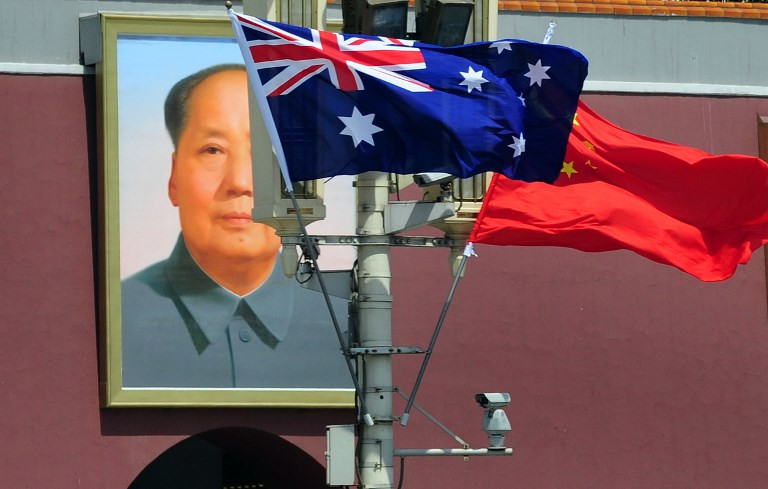Popular Reads
Top Results
Can't find what you're looking for?
View all search resultsPopular Reads
Top Results
Can't find what you're looking for?
View all search resultsAustralia says China coal ban would be clear WTO breach
Prime Minister Scott Morrison said Beijing had yet to confirm state media reports that Australia's multibillion-dollar coal exports are now subject to an informal ban.
Change text size
Gift Premium Articles
to Anyone
A
ustralia on Tuesday decried China's reported ban on its coal exports as an obvious breach of World Trade Organization rules, as tensions between the two countries flared again.
Prime Minister Scott Morrison said Beijing had yet to confirm state media reports that Australia's multibillion-dollar coal exports are now subject to an informal ban.
Nationalist state-run tabloid the Global Times said Sunday that Chinese power plants are being steered toward buying their coal domestically, as well as from countries other than Australia.
"If that were the case, then that would obviously be in breach of WTO rules," Morrison said. "It would be obviously in breach of our own free-trade agreement and so we would hope that is certainly not the case."
"We are seeking clarification on this," Morrison said, although ministerial-level contacts between the two countries are said to be non-existent.
Read also: China's November industrial output steps up as recovery gathers pace
Australia-China relations are at the lowest ebb since the 1989 Tiananmen Square crackdown, with Beijing rolling out a string of economic sanctions against Australian products.
Each dispute has been billed as a technical issue, but many in Canberra believe the sanctions are retribution for Australia pushing back against Chinese influence at home and in the Asia-Pacific.
At least 13 Australian sectors have been subjected to tariffs or some form of disruption, including barley, beef, copper, cotton, lobsters, sugar, timber, tourism, universities, wine, wheat and wool.
Suggestions of a coal embargo had been the subject of rumors for some time, with many Australia shipments reportedly already blocked at Chinese ports.
Read also: China's 'shadow trade war' threatens Australia
Experts had suggested that was a regular problem at the end of the calendar year, thanks to "soft quotas" China introduced to control the amount of coal coming into the country.
Policymakers in Beijing are trying to simultaneously reduce dependence on highly polluting coal for energy production and dependence on foreign sources of the fuel.
But an informal ban on Australian coal would be a dramatic escalation, targeting one of the country's most valuable exports -- worth up to US$3 billion a year -- and a sector that Morrison's conservative government has been keen to champion, despite objections from environmentalists.
Australia has long hinted that it may seek WTO intervention in the disputes, but a resolution could take years, open Australia up to retaliatory claims and worsen relations further.
There has so far been little indication that Australia's political allies in the United States or Europe have been willing to step in and offer support.
The dispute has called into question Australia's decades-old model for stellar economic growth -- namely supplying the raw materials for China's breakneck emergence as a modern economy.
Morrison said both nations had benefited from close trade relations over previous decades and called for "mature discussions".
"Australia has always participated in China's economic development," he said. "We always have been a proponent of China's economic growth. We are not one of those countries that have sought to contain their growth."










